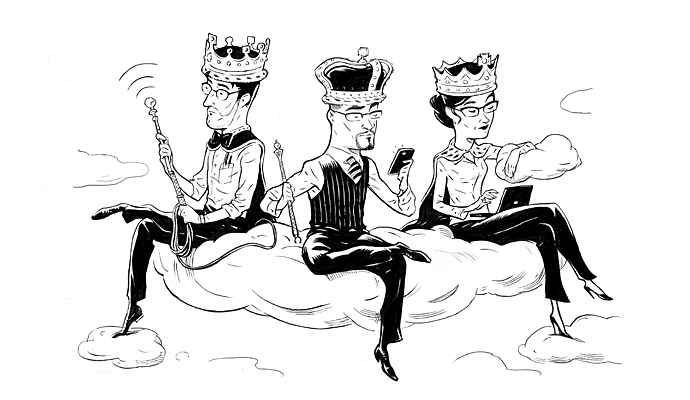The Virgin chronicles
Richard Branson’s books demonstrate how an entrepreneur’s drive and verve can turn seemingly crazy ideas into reality.
It wouldn’t surprise me to look up “entrepreneur” in the dictionary and find Richard Branson’s picture next to the definition. Heck, given his success at promoting himself and the Virgin brand over the past five decades, his picture could be there instead of a definition.
Branson founded Virgin in 1970 as a small mail-order business that sold discount records. Following a strategy that he describes as “screw it, let’s do it,” he went on to build eight billion-dollar companies in eight different sectors. Today, the Virgin Group employs more than 60,000 people in more than 100 companies. Its revenues are somewhere in the neighborhood of US$24 billion annually.
Branson built eight billion-dollar companies in eight different sectors.
Branson has written seven books recounting his adventures in business and elsewhere. From Losing My Virginity: How I've Survived, Had Fun, and Made a Fortune Doing Business My Way (Crown Business, 1998) to his newest effort, The Virgin Way: Everything I Know about Leadership (Portfolio, 2014), they’re all pretty much the same—humorous descriptions of Branson’s romps through a bewildering array of businesses, many of which were in mature industries with what were once deemed high barriers to entry, like airlines, telecom, banking, railroads, and soft drinks.
The Virgin Way and the books that came before it don’t contain blueprints for building and leading your own business empire. Indeed, they strongly suggest that it might be better to chuck all your well-laid plans out the window and just say “yes” to the next business idea you hear…and the next…and the next. (Branson’s staff nicknamed him “Dr. Yes” for good reason.)
But therein lies the real value of the peripatetic entrepreneur’s oeuvre: Branson’s books reveal how passion, imagination, a sense of fun and adventure, and just plain ballsiness can trump not only the status quo, but also everything they teach you in business school. You can hire plenty of people who will talk about the way things are and the way things should be done, but the qualities that a guy or gal like Branson brings to the table are much harder to come by.
There are also lots of great stories and some surprising lessons in Branson’s books. In The Virgin Way, he tells us about his love of elaborate April Fools’ Day pranks. In 1986, for example, when Virgin Megastores were popping up throughout the United Kingdom, Branson decided to play a joke on the music industry: He did an exclusive interview with Music Week, the industry’s leading trade publication at the time, in which he announced that his company had been “secretly developing a giant computer, on which we had stored every music track we could lay our hands on.” For a small fee, he said, consumers would be able to download any song or album they wanted.
The story, headlined “Branson’s Bombshell: The End of the Industry,” broke on the morning of April 1 and Branson’s phone started ringing off the hook as music executives called “to beg, threaten, and plead with me not to go ahead with such a crazy scheme.” At noon, he held a press conference revealing that “Music Box” was a prank.
Years later, Branson met Steve Jobs who said that he, too, had been taken in by the Music Box story, and that the idea had stuck in his head. The real punchline came later still, when Apple launched iTunes and the iPod, which sounded the “death knell” for Virgin Megastores—which now only operates in the Middle East.
“Clearly the moral behind this story,” explains Branson, “is that if you’re going to let others know—even as an April Fool’s joke—how you think your industry might look in the future, then you had better make sure that your company has a plan already in place to get you there first. If you don’t, then the joke could very easily be on you!”






